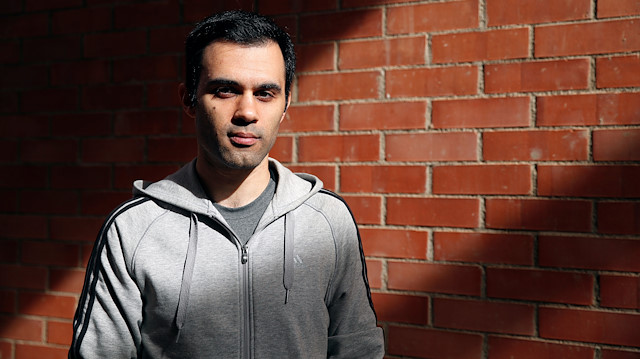
Trump withdrew this year from an international deal to curb Iran's nuclear programme and re-imposed sanctions, signalling the end of a wary detente between Washington and Tehran and a new phase of confrontation.
Visa ban exemptions, such as the one covering Iranian students, were cited by the Trump administration in the Supreme Court this year in countering allegations the policy constituted a "Muslim ban" akin to what Trump had called for during the 2016 presidential campaign.
Lawyers for the government argued in one brief to the Supreme Court that Trump’s policy "does not impose blanket bans but allows entry of some classes of nationals from the covered countries." The Supreme Court, in a 5 to 4 split, allowed the ban to go forward in June.
The State Department does not publish visa application numbers, making it hard to assess how much of the drop in the number of study visas granted to Iranians is due to rejections or delays and how much is because fewer of them are applying.
American universities enjoy an elite reputation in Iran and welcome its students, many of whom take courses in engineering and go on to fill skills shortages in the U.S. and elsewhere.
Back in Iran, they counterbalance powerful conservative religious forces and provide a bridge to the West for future rapprochement. In the lead-up to the 2015 international nuclear deal, six out of 25 members of President Hassan Rouhani's 2014 cabinet held U.S. degrees.
Twelve Iranians with places at U.S. universities told Reuters their visa applications were “under administrative processing” for extended periods, a term that generally refers to extensive background checks.
Separately, around 15 Iranians hoping to study at Oklahoma State University this fall had visa delays, a university official said.
Regina Henry, the immigration coordinator at OSU’s international students office, said she wrote letters giving them permission to arrive two weeks late. But that window was not enough for any of the 15. Typically, Henry has to write a maximum of five such letters each semester.
"This is the first time I’ve ever had to write so many and they were all Iranians, every one of them," she said.
Some department heads at the university were becoming more hesitant to grant coveted graduate assistant positions to Iranian applicants, she said, even if they were their first choice, given the visa trouble they face.
A State Department official at the Bureau of Consular Affairs, when asked about the delays, said on condition of anonymity that national security was the top priority when adjudicating visa applications.
"We are constantly working to find mechanisms to improve our screening processes and to support legitimate travel and immigration to the United States while protecting U.S. citizens,” the official said.
Historical data, which tracks the wider F category of visas granted to students and their dependents, shows that issuance of such visas to Iranians began falling in the year to end-Sept 2015 after rising several years in a row. After a one percent drop that year, it fell by 17 percent and 16 percent respectively the two following years.
Washington has placed restrictions on Iranian students for years: a 2012 law signed by former U.S. President Barack Obama barred granting visas to Iranians to study fields that would prepare them for working in Iran’s energy sector, nuclear science, or nuclear engineering.
Yet the school year after that saw a 17 percent jump in the number of Iranian students in the United States, IIE data show.
European signatories of the nuclear deal are still committed to the accord and are trying to create a financial mechanism to protect trade with Tehran against U.S. penalties.
Security concerns are less of a problem for Iranians in Europe. After he gave up on a U.S. visa, Rezaei Rad got one from Spain in just four weeks to study at a university in Barcelona.
Dutch universities admitted 82 more Iranian students in 2017, data from educational non-profit group Nuffic showed, while Germany's Ludwig Maximilian University of Munich said it had 20 more Iranians enrolled this year.
Uppsala University in Sweden said 135 more Iranians applied in 2018 compared with 2016, and Humboldt University of Berlin and Eberhard Karls University of Tübinge in Germany also said numbers had risen.
Some people are still holding out for a U.S. place. Tehran resident Abbas was admitted to an American university and applied for a U.S. visa last year, but was still waiting when this year's enrolment came and went.
"I have lost two years of study so far," the 31-year-old said by telephone, withholding his full name for fear his comments might affect his application.






